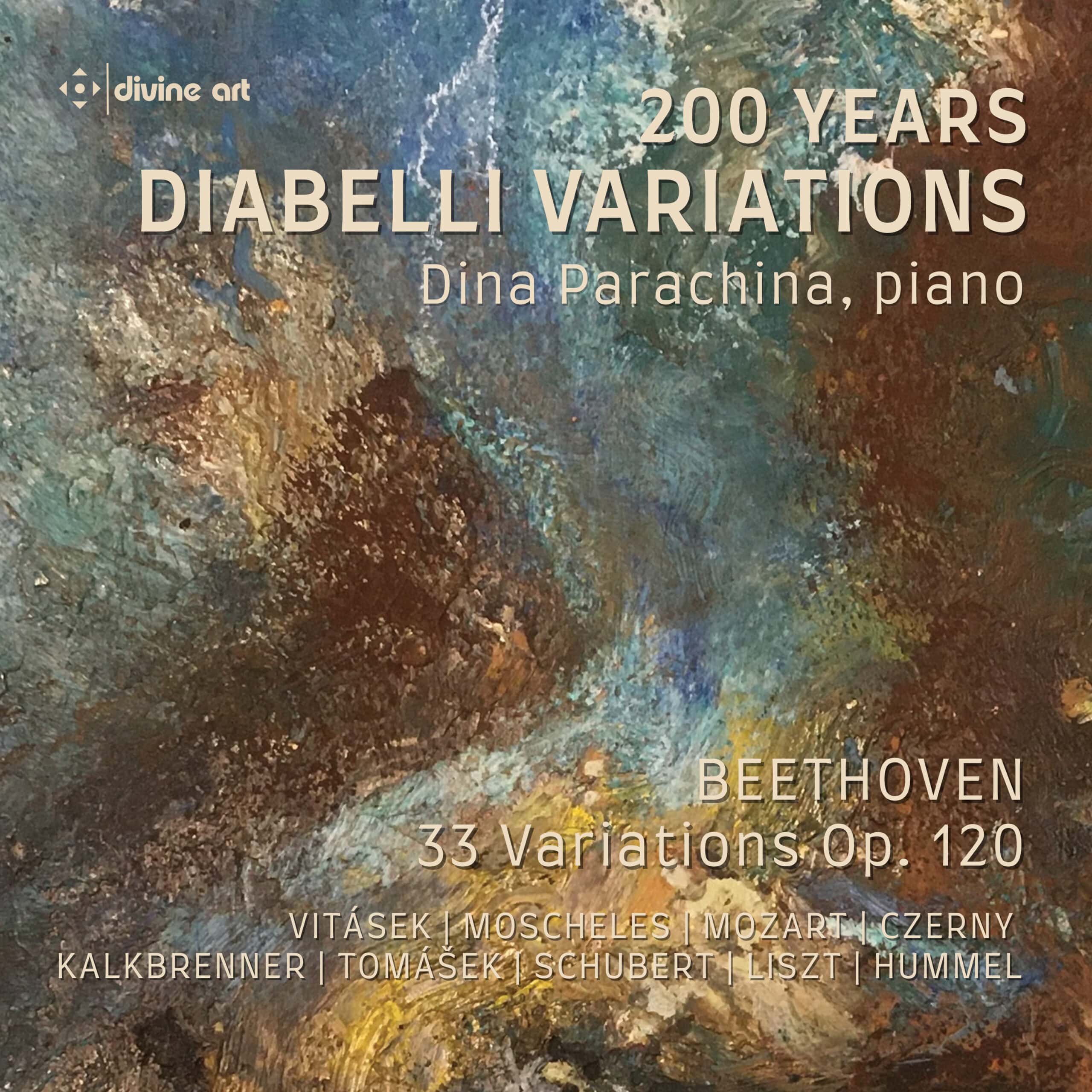Fanfare
For this imaginatively programmed disc, Russian-born pianist Dina Parakhina has added to Beethoven’s famous variations on a waltz by Anton Diabelli 10 more variations written by other composers who agreed to respond to Diabelli’s original request for each of 50 composers to write one. Beethoven refused to participate, but then composed an almost hour-long set of 33 variations that turned into one of his late keyboard masterpieces.
Beethoven’s Diabelli Variations come first, after which Parakhina has chosen well from among the others, putting them in what she believes is an appropriate musical order designed for flow rather than the order in which they appear in the original set of fifty. Since Beethoven’s comprises nearly 75% of the quantity and a much higher proportion of the quality, the performance of his contribution is of paramount importance.
Parakhina acquits herself well without effacing memories of the finest recordings of the Diabellis, such as those by Sviatoslav Richter, Rudolf Serkin, and Piotr Anderszewsi. They exhibit a degree of coloristic variety that doesn’t seem to be in Parakhina’s arsenal. She embraces the dramatic contrasts in the music, but her dynamic range is somewhat limited, particularly at the softer end of the spectrum. Her soft playing in Variation 26, for example, is a bit blunt. She captures the drama and sweep of Beethoven’s writing, but there are moments when more of a smile would be welcome in response to the score’s rough humor.
What sets this release apart is the selection of variations by other hands. Those by Schubert and Liszt are of the expected high quality, but most of the rest are also imaginative. In particular, Variation No. 4 by Czerny shows a level of wit and ingenuity you might not expect if you only knew his exercises, and No. 16 by Hummel exhibits great charm.
The same virtues and limitations that mark Parakhina’s Diabelli Variations are present in the other composers. She has considerable technical fluency, avoids muddiness even in the most rapid passagework, is rhythmically alert, and has a good sense of the dramatic. By the same token, one can imagine that some variations would benefit from a warmer, less severe, approach.
All in all, this is a worthwhile disc even if it doesn’t rival the great Diabelli Variations on disc. The piano sound is fine, if not outstanding, and the program notes are quite informative.
@divineartrecordingsgroup
A First Inversion Company
Registered Office:
176-178 Pontefract Road, Cudworth, Barnsley S72 8BE
+44 1226 596703
Fort Worth, TX 76110
+1.682.233.4978












